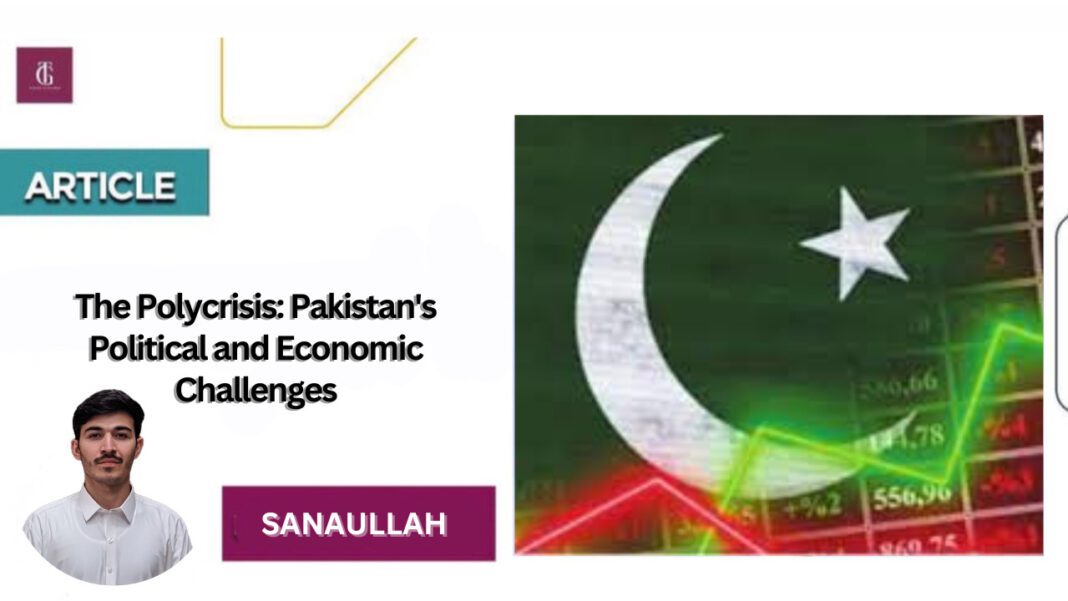The recent political and economic upheavals in Pakistan are manifestations of the once-in-a-generation polycrisis, in which multiple crises converged, strengthened one another, and nearly spiraled out of control. They can achieve a rough framework collapse if such emergencies are left unrestrained. The fact that all parties involved are currently attempting to control this upheaval is not surprising. In any case, it is critical to take apart late occasions to comprehend the reason why they occurred and how can be forestalled such disasters later on.
Pakistan’s official foreign exchange reserves reached an all-time high of $20 billion in September 2021, with the compact between the various power centers still intact. However, at that point, two drivers all the while caused the country’s unfamiliar trade stores to dive sharply right down to under $3bn in February this year.
A political conflict that first surfaced in October 2021 was the primary driver. By the end of March 2022, this conflict had developed into a full-blown political and constitutional crisis, so much so that the new government couldn’t do much because it was under constant political pressure from people who still supported the previous government.
The subsequent driver was monetary. As the world emerged from the Coronavirus pandemic in mid-2022, costs began rising quickly in the Worldwide North. In February 2022, hostilities between Russia and Ukraine resulted in global inflation reaching 40-year highs, putting a significant strain on Pakistan’s economy, which was already struggling with high inflation and a lack of job creation.
Because the current stagflation has made life difficult for most people, policymakers must address genuine economic concerns. Pakistan’s economy was close to default due to the combined impact of these two factors, political and economic. As worldwide oil costs soar, Pakistan’s policymakers didn’t make ideal financial choices, mostly because they were too centered around braving the political upheaval and part of the way because ideal choices —for example, passing on higher oil costs or letting market influences decide the conversion standard — involved political costs that the new government was not able to pay.
In the hope that this would force the system toward general elections, some politicians also added fuel to the fire by creating chaos and insisting that default was imminent. By forcing people to acquire more and more foreign currency, they deliberately stoked inflation in the country and caused unnecessary panic, which delayed stabilization.
However, the economy’s outer position has fairly settled, and this adjustment has come at an extremely steep expense of practically no monetary development during this financial year — a pitiful 0.29 percent. Alarmingly, an additional 20 million people have fallen below the poverty line due to the country’s record-breaking floods and inflation of 38 percent last year. Appraises likewise show that the absence of monetary development will expand the number of jobless individuals in Pakistan to more than 10m.
There are a few policy lessons from these recent events as the dust settles. First, Pakistan’s economic slide must be stopped immediately, as evidenced by these appalling economic indicators and the fact that nearly 2 million young people enter the job market each year face unemployment or underemployment and are forced to take jobs that do not meet their training or financial needs. The Asian Development Bank claims that in light of Pakistan’s employment elasticity of 0.5 percentage points, it would require economic expansion of at least 7 percentage points to generate sufficient employment.
Because the current stagflation has made life especially difficult for most people, policymakers must address these genuine economic concerns. Neglecting to address these worries will probably prompt a significantly more extreme — existential nearly — polycrisis soon.
Second, the significant role that technology, particularly social media, played in the recent crisis is also highlighted by the capacity of some elements to create chaos. Political science professor Niloufer Siddiqui contends that political parties are increasingly using new narratives on social media to entice young voters in Pakistan’s traditional politics of electables and patronage.
Sadly, some of these manufactured narratives are out of the question because abuse has damaged the national spirit. Youngsters are losing confidence in the political administration’s capacity to control Pakistan out of its current arrangement of challenges. Upheavals occur in other nations as well, but the populace responds. On account of Pakistan, in any event, when the economy has created an ongoing record surplus for two back-to-back months, the Pakistani rupee is still sliding against the US dollar.
Policymakers need to track down approaches to utilizing innovation to impart realities and counter disdain discourse to keep the adolescent from losing trust. The significance of improving youth communication cannot be overstated because Pakistan is a young nation with a median age of only about 23 years. As the development of generative artificial intelligence now facilitates the dissemination of deepfakes, improved communication is also crucial.
Last, and maybe above all, Pakistan’s perpetual political issue should be faced. The country’s political space appears too constrained for some political parties every few years. As Samuel Huntington argued in 1968, vibrant political parties serve as the primary safeguards against social violence, so such purges are extremely detrimental to the political system over the long term.
For political parties to have the chance to develop democratically or fade away, policymakers must do everything in their power to keep the political space open. Pakistan should not accept a tyrant turn, as this would delete the unmistakable additions this political framework has made toward a majority-rule government.

SANA ULLAH
Sanaullah is a passionate and dedicated student currently pursuing a degree in Political Science at Quaid-e-Azam University in Islamabad. As he embarks on his fourth semester, he is driven by a strong desire to understand the intricacies of politics, governance, and their impact on society.






